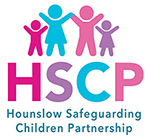Self-harm & Suicide
Self-harm can be described as wide range of behaviours that someone does to themselves in a deliberate and usually hidden way. In the vast majority of cases self-harm remains a secretive behaviour that can go on for a long time without being discovered. Many children and young people may struggle to express their feelings and will need a supportive response to assist them to explore their feelings and behaviour and the possible outcomes for them.
The following risk factors – particularly in combination – may make a young person vulnerable to self-harm.
Individual Factors:
- Depression / anxiety / low mood;
- Poor communication skills;
- Low self-esteem;
- Poor problem-solving skills;
- Hopelessness;
- Impulsivity;
- Drug or alcohol misuse.
Family Factors:
- Unreasonable expectations;
- Neglect or abuse (physical, sexual or emotional);
- Child being Looked After;
- Poor parental relationships and arguments;
- Depression, deliberate self-harm or suicide in the family.
Social Factors:
- Difficulty in making relationships / loneliness;
- Persistent bullying or peer rejection;
- Easy availability of drugs, medication or other methods of self-harm;
- Living in the borough’s more deprived areas.
